By Col. Mackubin Owens, USMC (ret)
The US military is in trouble. How do we know?
First, the services are facing “unprecedented challenges” in recruiting. Officials blame a combination of circumstances: a shrinking percentage of young Americans fit for service; an inability to recruit in high schools during the COVID-19 pandemic, when many students attended school virtually, resulting in “a decline in academic and physical fitness levels;” and an improving U.S. job market.
But as I argue below, the problems run deeper.
Second, there has been a precipitous decline in support for the military, an institution that has maintained the high respect of the American people for decades.
In its 2021 poll of attitudes toward the US military, the Ronald Reagan Presidential Foundation found that the percentage of Americans expressing a great deal of trust and confidence in that institution had fallen from 70 percent to 45 percent from 2018. It has declined even more since then.
What accounts for that decline? Is there a connection between Americans’ loss of confidence in the military and the military’s current recruiting issues?
People join the military for a variety of reasons. Economic circumstances play a role but so do patriotism and the search for adventure.
Who has traditionally joined the military? Those who recognize the inherent dignity and necessity of the martial virtues. Those who believe in the sort of military “ethos” that underpins unit cohesion and military effectiveness.
This ethos, which has served the Republic well, is based on trust among soldiers, between superiors and subordinates, and at the societal level between soldiers on the one hand and citizens on the other.
This mutual trust and the acceptance of a distinct military ethos is necessary if the military is to carry out what Samuel Huntington in his classic study of US civil-military relations, The Soldier and the State, called its functional imperative, the ability of the military to respond to external threats to the U.S. The military must be capable of deterring war or winning it if it comes. The key here is military effectiveness.
It has long been accepted that to execute the military’s functional imperative on behalf of the nation, the military of necessity must maintain an ethos distinct from that of liberal society.
Indeed, a liberal democracy faces a paradox when it comes to the relationship between the military and society at large: the former cannot govern itself in accordance with the democratic principles of that society.
Behavior that is acceptable, indeed even protected, in civil society is prohibited in the military. The military restricts the freedom of movement of its members, it restricts speech, and it prohibits certain relationships among members, such as fraternization. It stresses virtues that many civilians see as brutal and barbaric because the military is one of the few jobs where you may have to tell someone, “go die.”
If the military fails, the society it protects may not survive.
And long experience has taught us that certain kinds of behavior are destructive of good order, discipline, and morale, without which a military organization will certainly fail.
The goal of military policy must be victory on the battlefield, a purpose that cannot be in competition with any other, including the provision of entitlements, “equal opportunity,” or diversity. Indeed, the battlefield mocks “diversity.”
Unfortunately, many of those in positions of responsibility—including far too many senior members of the military itself—seem to have forgotten this imperative.
This attitude is the result of another set of social forces that Huntington identified. These he called the societal imperative, “the social forces, ideologies, and institutions dominant within the society.”
He identified two components of the societal imperative:
1) the US constitutional structure, the legal institutional framework that guides American politics and military affairs; and
2) the dominant ideology shaping political affairs, which Huntington identified as liberalism, “the gravest domestic threat to American military security,” due to its anti-military character.
The problem for Huntington was that in the long run, the social imperative would prevail over the functional imperative, undermining the military virtues necessary to ensure military effectiveness.
Huntington argued that America’s anti-military liberal ideology tended to produce two outcomes.
When the external threat was low, liberal ideology sought “extirpation,” the virtual elimination of military forces.
When the external threat was high, liberal ideology pursued a policy of “transmutation,” refashioning the military along liberal lines by stripping it of its “particularly military characteristics.”
Today, we have transmutation on steroids.
The latest manifestation of transmutation is the military’s worship of “diversity.” Indeed, diversity now trumps military effectiveness as a goal of military policy.
But attempts by the military to address an alleged lack of “diversity” in the ranks can actually make things worse by pushing “identity politics,” which, by suggesting that justice is a function of attributes such as skin color rather than one’s identity as an individual, tends to divide people rather than unifying them.
Identity politics undermine military effectiveness, which depends on cohesion born of trust among those who operate together.
The fact is that because of its commitment to unit cohesion, the United States military services have been at the forefront of achieving harmony and cooperation among what used to be considered true “diversity”: one of all races, ethnicities, religions, and geographic regions.
As the late military sociologist, Charles Moskos, observed two and a half decades ago, the United States Army was then the only American institution in which black men routinely gave orders to white men. In fact this was true of all the services. Although far from perfect, military service has been a “school of the nation.”
For most of American history, those in the military stood up for the military ethos, explaining to the fellow citizens why it was critical to military effectiveness. Sometimes they prevailed; sometimes, they lost.
It was for this reason that the military has remained one of the most respected institutions in America. But as the polls cited above suggest, this seems to be changing and it may very well be contributing to the military’s recruiting problems.
The commitment to “diversity” at all costs is today’s party line within the Pentagon.
No one wants to be accused of racism or sexism so too many officers hold their tongues as the rank and file are indoctrinated by critical race theory (CRT) ideologues. Those who don’t can find themselves sacked.
Another factor in a declining interest in military service is the calumny that the military is a hotbed of “extremism” and “white supremacy.” This last issue is of particular concern to those who believe that cohesion based on mutual trust is a part of the military ethos.
Like identity politics, the claim that the military is now populated by right-wing extremists and white supremacists does not unify, it divides, undermining trust among service members.
The source of the extremist claim seems to be the fact that there were veterans among the rioters who unlawfully entered the Capitol on 6 January 2021, the persistent claim that Trump appealed to extremist groups, and Trump’s popularity with the military.
But the real problem is that political and military leaders have failed to define their terms. They have failed to identify incidents that constitute extremism or racist behavior. Is it resistance to CRT indoctrination? Is it conservative political views? Will the social media of military members be scrutinized? By whom?
Of course, there have been serious racial incidents involving military service members in the past. Military leaders never condoned such behavior and were quick to deal appropriately with the perpetrators. But such incidents have also been rare. The idea that racism and extremism are somehow pervasive throughout the military is nonsense—indeed a slander.
The claim that extremism and white supremacy are widespread in the military undermines trust on two levels: first, between the American people and the military as an institution; and second, between the military rank and file and their leadership.
Americans hold the military in high regard, perhaps too high. But if civilians have tended to place members of the military on a pedestal, to now imply that extremism and white supremacy are rampant in the military can only engender disrespect for the military on the part of the American people and lead to condemnation. And this will lead to both reduced recruiting and lower retention rates.
Regarding trust within the force, what is the rank-and-file soldier to think when both politicians and especially senior officers seem to suggest that adhering traditionally conservative ideas such as gun rights and smaller, less intrusive government might make him or her a threat to the country?
What will be the consequences for morale and discipline if the ranks believe that senior leaders have sold them out by their seeming willingness to go along with such accusations?
I am personally aware of increasing disillusionment on the part of service members who feel betrayed by their senior leadership.
Individuals join the military for a variety of reasons but a dominant one is a sense of patriotism, which is undermined if service members believe that senior officers are willing to sacrifice them to trendy political ideas.
The suggestion that white supremacy and extremism are rampant in the military undermine the military ethos. Both political officials and senior officers owe it to the country in general and the military force to define extremism, identify actual cases, and provide data supporting their claim that a real problem does in fact exist.
The US military claims to be a “profession.” But instead of defending its professional ethos, the Pentagon is revealing itself to be just another failed government bureaucracy pursuing its budgetary self-interest. This perception cannot but hurt recruiting.
The U.S. military is at a crossroads. It is clearly living off of the accumulated capital of earlier generations of soldiers.
As Adam Smith once observed, “there is a great deal of ruin in a nation.”
But today the margin of error is smaller than during earlier times. It is up to the country’s political and military leadership to take a stand against the “long march.”
The choice is between military effectiveness and “wokeness.” If our leaders fail to correct the military’s drift, the result will be catastrophic defeat on a future battlefield.
Mackubin (Mac) T. Owens is a Senior Fellow at the Foreign Policy Research Institute. He previously served as editor of Orbis: FPRI’s Journal of World Affairs. From 2015 until March of 2018, he was Dean of Academic Affairs and Professor at the Institute of World Politics in Washington, D.C. From 1987 until 2014, he was Professor of National Security Affairs at the US Naval War College in Newport, Rhode Island. At the War College he specialized in the planning of US strategy and forces, especially naval and power projection forces; the political economy of national security; national security organization; strategic geography; and American civil-military relations. Dr. Owens is a Marine Corps veteran of Vietnam, where as an infantry platoon and company commander in 1968-1969, he was wounded twice and awarded the Silver Star medal. He retired as a Colonel in 1994. Full BIO


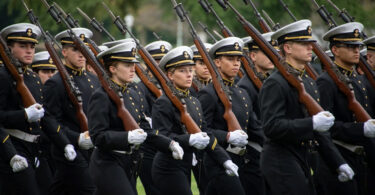
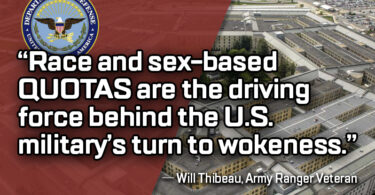
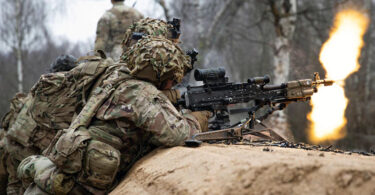
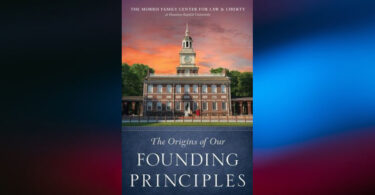
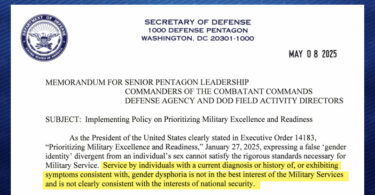

Leave a Comment